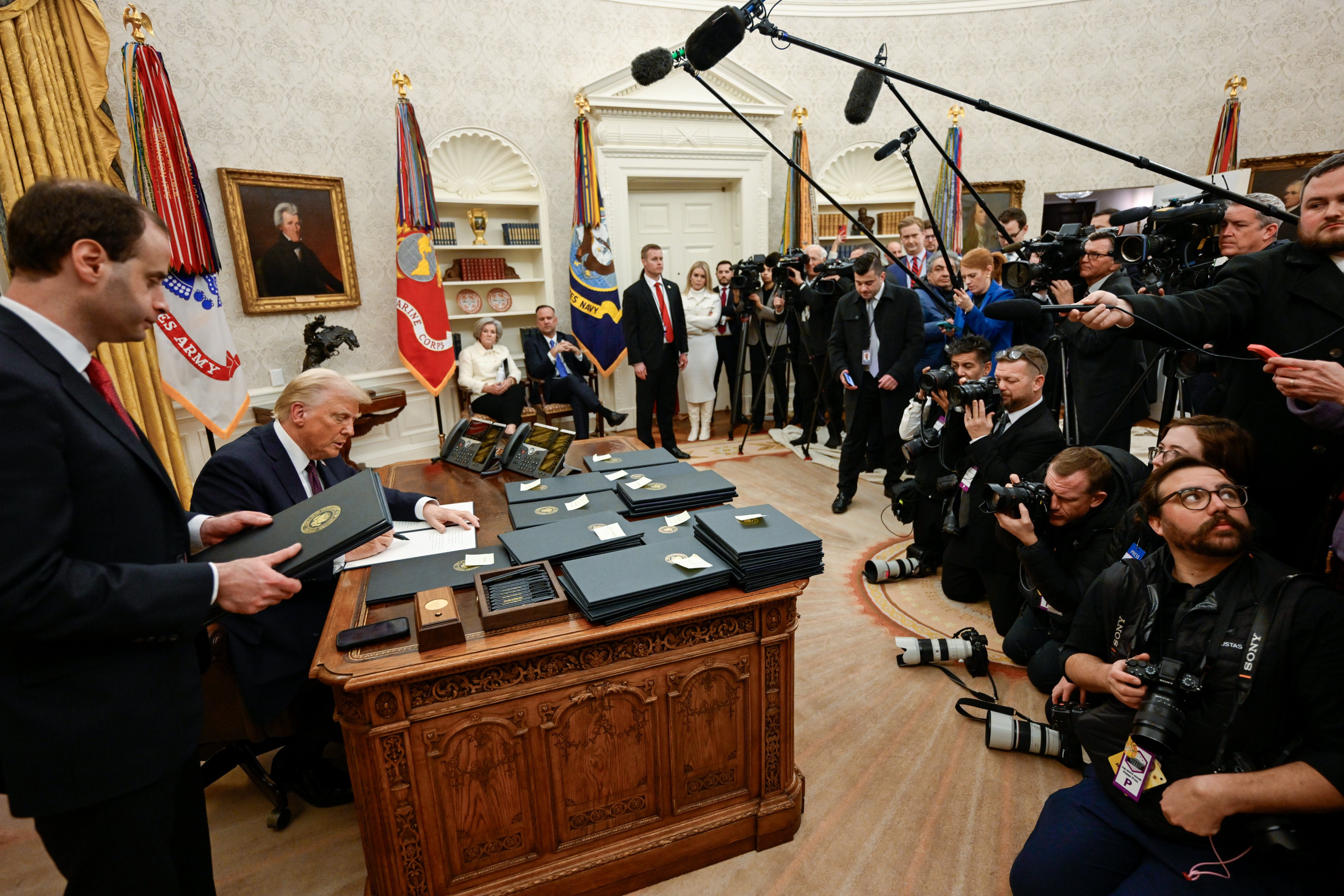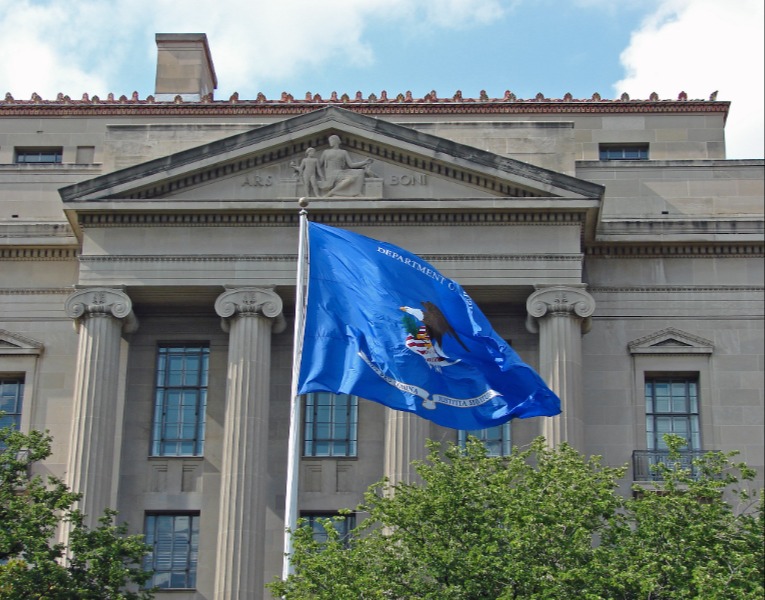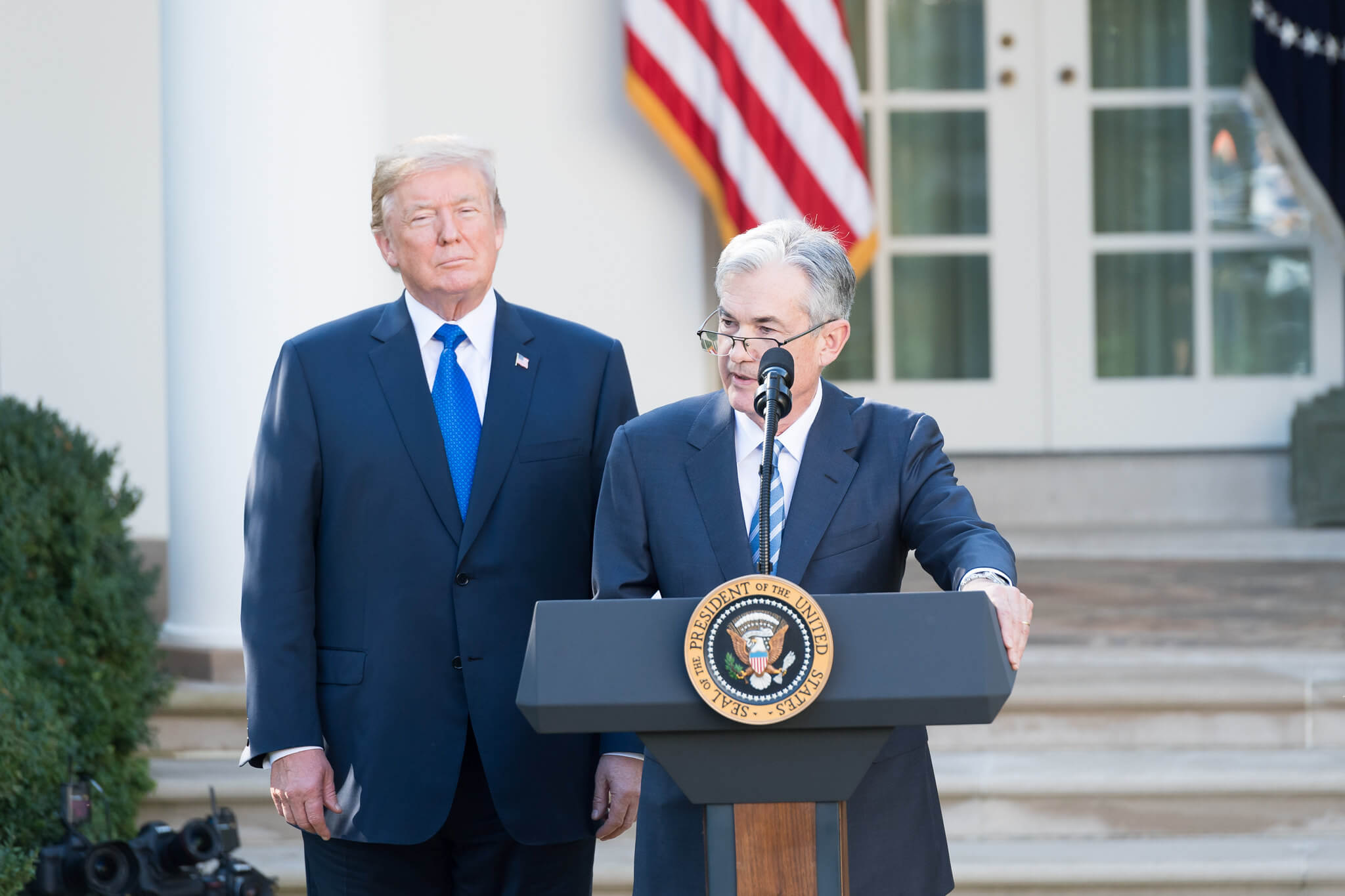Did the Justice Department Give President Biden Legal Advice on the CDC Eviction Moratorium?
Although many questions remain unanswered, there is troubling evidence that either the Justice Department was not consulted on a major legal issue or the Biden administration has misrepresented its legal position to the public.

Published by The Lawfare Institute
in Cooperation With

Last Tuesday the Centers for Disease Control and Prevention (CDC) issueda new moratorium on evictions as part of an effort to fight the coronavirus pandemic. This represents a stark reversal from the administration’s repeated statements that the CDC lacked the statutory authority to issue such a moratorium. While most of the public controversy over the CDC’s action has been around its legality, another important question remains unanswered: What process did the Biden administration use to change its legal position? Although many questions remain unanswered, there is troubling evidence that either the Department of Justice was not consulted on a major legal issue or, in the alternative, the Biden administration has misrepresented its legal position to the public. Both of these possibilities raise questions about the Biden administration’s commitment to restoring the norms of executive-branch functioning.
In September 2020, the CDC issueda nationwide moratorium on evictions, justifying its action on the grounds that evictions would spread the coronavirus and that the moratorium was thus a valid exercise of its powerto “make and enforce such regulations as in [the agency’s] judgment are necessary to prevent the introduction, transmission, or spread of communicable diseases.” The moratorium was challenged on constitutional and statutory grounds by rental-property owners and, in May, a judge in the U.S. District Court for the District of Columbia heldthat the order exceeded the CDC’s statutory authority but stayedthe judgment pending appeal. The U.S. Court of Appeals for the District of Columbia Circuit upheldthe stay and, in an unsigned, 5-4 decision, the Supreme Court denieda request to lift the stay, allowing the moratorium to continue until its planned expiration at the end of July.
But the Supreme Court decision was not an endorsement of the moratorium’s legality. In a one-paragraph statement, Justice Brett Kavanaugh, who voted to preserve the district court stay, wrote that he “agree[d] with the District Court and the applicants that the Centers for Disease Control and Prevention exceeded its existing statutory authority by issuing a nationwide eviction moratorium” and that, in his view, “clear and specific congressional authorization (via new legislation) would be necessary for the CDC to extend the moratorium past July 31.” The reason Kavanaugh did not vote to vacate the stay and enjoin the moratorium was that the moratorium was set to expire a month later, and “those few weeks will allow for additional and more orderly distribution of the congressionally appropriated rental assistance funds.” Kavanaugh thus let the moratorium continue, but it appears that a majority of the court—Kavanaugh and the four justices who would have granted the stay—believes that the CDC lacks the statutory authority to issue a nationwide eviction moratorium.
The Biden administration appeared to have initially understood the decision in the same way, stating, as late as July 29, that “the Supreme Court has made clear that [the CDC eviction moratorium] option is no longer available.” But Congress failed to act to authorize an extension of the moratorium, and progressive Democrats ratchetedup the pressure for the administration to act unilaterally to provide eviction relief. The Biden administration then abruptly changed positions, deciding sometime this past week that the CDC did, in fact, have the legal authority to issue a new, albeit somewhat narrower, moratorium. When asked about the legal basis for his administration’s about-face, Biden assertedthat “[t]he bulk of the constitutional scholarship says that [the new moratorium is] not likely to pass constitutional muster” but that, “at a minimum, by the time it gets litigated, it will probably give some additional time” for renters to get federal rental-relief payments. In other words, there is a possible, albeit not probable, case for the moratorium’s legality, and by the time the courts weigh in one way or the other, the moratorium will have protected at least some renters from eviction. Unsurprisingly, the original eviction-moratorium plaintiffs have challengedthis new moratorium, arguing that the administration’s changing legal position is evidence of “bad faith.”
There are many legal issues to unpack around the new moratorium. Most obviously, there’s the question of its substantive legality. The main statutory question, around which the litigation over the original moratorium centered, is whether the broadly but vaguely worded 1944 Public Health Service Act gives the CDC the power to block evictions on a mass basis in the service of contagious-disease prevention. There is also a constitutional question: Would the eviction ban constitute a “taking” under the Fifth Amendment that would require just compensation for landlords?
In addition, what, if any, guidance should the government take from the Supreme Court’s actions on the moratorium question so far? On the one hand, the court has not officially heldthat the CDC lacks the statutory authority to issue a nationwide eviction moratorium, and the administration has emphasized this point in its defenseof the new moratorium. On the other hand, there appear to be at least five votes to strike down the moratorium as exceeding the CDC’s statutory authority, as Biden himself recognized at his press conference (albeit in somewhat garbled form): “But the present—you could not—the Court has already ruled on the present eviction moratorium.” Whether as a matter of constitutional law—the president’s obligation to “take Care that the Laws be faithfully executed”—or even just prudence, should the president take action that he believes the courts will strike down, even if there is no controlling precedent exactly on point?
These are all important and difficult issues, but there is another question that has not gotten nearly as much attention: Who gave Biden the legal advice that apparently changed his mind about the legality of the moratorium?
In the press conference answering questions about the new eviction moratorium, Biden gave the following explanation:
I’ve sought out constitutional scholars to determine what is the best possibility that would come from executive action, or the CDC’s judgment, what could they do that was most likely to pass muster, constitutionally. The bulk of the constitutional scholarship says that it’s not likely to pass constitutional muster. Number one. But there are several key scholars who think that it may and it’s worth the effort.
According to reporting, these “key scholars” included well-known law professors at Duke and Harvard law schools, such as Walter Dellinger, Martha Minow and Laurence Tribe; Tribe in particular was recommendedto Biden by Nancy Pelosi. Which if any scholars consulted by the White House counseled against the legality of a second eviction moratorium is still unclear.
When White House press secretary Jen Psaki was asked who gave the legal sign-off on the new moratorium, she identifiedother sources of legal advice:
The CDC’s lawyers, as well as our Counsel’s Office—yes. I’m not aware of the Department of Justice’s engagement, but of course, that might make sense. I would have to check on that.
She also said, in some tension with Biden’s earlier admission that the “bulk of the constitutional scholarship” was skeptical of the legality of the eviction moratorium, that “the President would not have supported moving forward if he did not support the legal justification. He is old school in that way.”
Thus, the official position of the administration now appears to be this: It originally supported the legality of the first eviction moratorium, which it defended in court; after the Supreme Court signaled that a majority of the justices did not believe the moratorium was legal, it changed its position and concluded that the CDC could not, absent congressional action, issue a new eviction moratorium; and it then changed its position again, based on some combination of advice from outside legal experts, White House counsel, and the CDC’s lawyers and decided that the CDC did indeed have the authority to issue an eviction moratorium, albeit a narrower one.
Taking this story at face value, the obvious question is where was the Justice Department in all of this? What was the position of the Office of Legal Counsel (OLC), which would ordinarily be the last word on high-profile, complex legal questions such as this one, or the Office of the Solicitor General and the Civil Division, which have responsibility for defending the new moratorium in court?
There are presumably three options. The first is that the Justice Department told the White House that the CDC did not have the authority to issue a new eviction moratorium and the White House ignored that advice. The second option is that the department wasn’t consulted, either because of an oversight from the White House or because the White House, suspecting that the department would return an answer it didn’t want, simply didn’t ask the Justice Department. The third option is that the department was consulted, told the White House that the CDC did have this authority, and this fact has simply not been disclosed in the White House’s public messaging so far. More reporting is needed on this question, but it’s notable that, when Politico’s Josh Gerstein askedAttorney General Merrick Garland whether the department signed off on the eviction moratorium, Garland did not answer the question.
All three of these options raise concerns. If the Justice Department was overruled or simply cut out of the process, this represents a serious breakdown in how executive branch legal decision-making is supposed to happen. To be sure, the president has the final word on executive branch legal positions. He has no constitutional or statutory obligation to consult with, let alone abide by, the legal opinions of the Justice Department. But over decades, a powerful norm has developed that the Justice Department, in particular, is the proper source of legal guidance for the executive branch. OLC is designed not only to produce legal analysis of the highest possible quality that is consistent across the executive branch and with prior executive branch precedent, but, through a combination of its culture, reputation, and institutional position within the Justice Department, is designed to be at least partially insulated from politics so as to provide“advice based on its best understanding of what the law requires—not simply an advocate’s defense of the contemplated action or position proposed by an agency or the Administration provide the president with the ‘best view of the law.’” (Whether OLC has always lived up to this lofty standard, and whether past presidents have always treated OLC as authoritative, is a separate question.) And the Office of the Solicitor General and the Civil Division, the primary litigators for the executive branch, make sure that the executive branch upholds its credibility with the courts and takes positions that support the executive branch’s overall legal interests, not to mention general rule-of-law norms. If Pelosi really did tell Biden to “get better lawyers” and Biden responded by going outside the Justice Department, that should set off alarms about the confidence that Biden has in the department’s traditional role as the main source of legal advice and analysis for the executive branch.
None of this is to say that the sources on which the Biden administration reportedly relied were subpar, or that Biden was wrong to solicit a wide range of legal views in addition to those of the Justice Department, but rather that none of them provide the department’s “special sauce”: the combination of high-level legal expertise and a degree of independence achieved through institutional design, internal culture or reputation. The White House counsel’s office is, if only by virtue of its proximity to the president, inclined to take a particularly aggressive view as to the legality of the president’s policy goals. The CDC’s lawyers, while no doubt expert when it comes to the CDC’s statutory authority, may not have sufficient distance from their own agency’s equities to always provide the best view as to the scope of the CDC’s powers. And outside scholars, no matter how illustrious, are precisely that: outsidethe government and thus outside the institutional structures that have been developed to provide appropriate legal advice within the executive branch and avoid the risk of cherry-picking, which is a particular concern in this case given the wide variety of sincerely held views across the legal academy. (Besides, the attorney general was, until recently, one of the most respected appellate judges of his generation, and OLC is headed by two widely respected constitutional lawprofessors—the Justice Department is more than qualified to give the White House all the legal advice it needs.) If the Biden administration decided to make an abrupt change in its legal position, these sources of advice should have been at minimum supplemented by the department’s considered views.
If, on the other hand, the Justice Department did in fact sign off on the new order but the Biden administration simply hasn’t said so, that would be its own, wholly avoidable error. Part of upholding the procedural norms of executive branch legal interpretation is stating publiclythat those procedures were followed. If one follows a norm but acts as if one didn’t, that undermines the norm as much as if one had actually flouted it.
There is, of course, another possibility: that the White House never actually believed that the CDC lacked the authority to issue another eviction moratorium, but that it said so to put pressure on Congress to act. This would certainly explain the Justice Department’s apparent silence: OLC, the Civil Division, and the Office of the Solicitor General presumably all signed off on an interpretation of CDC authorities as including the power to issue an eviction moratorium, because they were defending the original moratorium all the way up to the Supreme Court. And given that the court hasn’t issued a ruling on the merits, and the new CDC moratorium is narrower than the old one, there would be no need for the Justice Department to update its legal view, since the underlying issue had not changed.
This view is thus reassuring from the perspective of internal executive branch legal process, but it raises concerns of its own about the candor of the administration’s statements about its view of the law. If the administration believed this entire time that the CDC could issue a moratorium, but publicly misrepresented its view to pressure Congress to act, that would seriously undermine its credibility.
A central message of Biden’s campaign was that he would rebuild norms of transparency, procedure, and honesty in the executive branch, norms that had been severely weakened by four years of the Trump administration. Based on the record as it stands now, there is a serious cloud around whether in this case the Biden administration has lived up to that promise. At the very least, the administration should clarify its confusing and seemingly contradictory statements about the internal legal deliberations. Whether one supports or opposes the CDC’s eviction moratorium, the question of how its legal basis was developed and whether that process was communicated truthfully and accurately to the public is a serious one, and one for which the Biden administration should be held to account.





